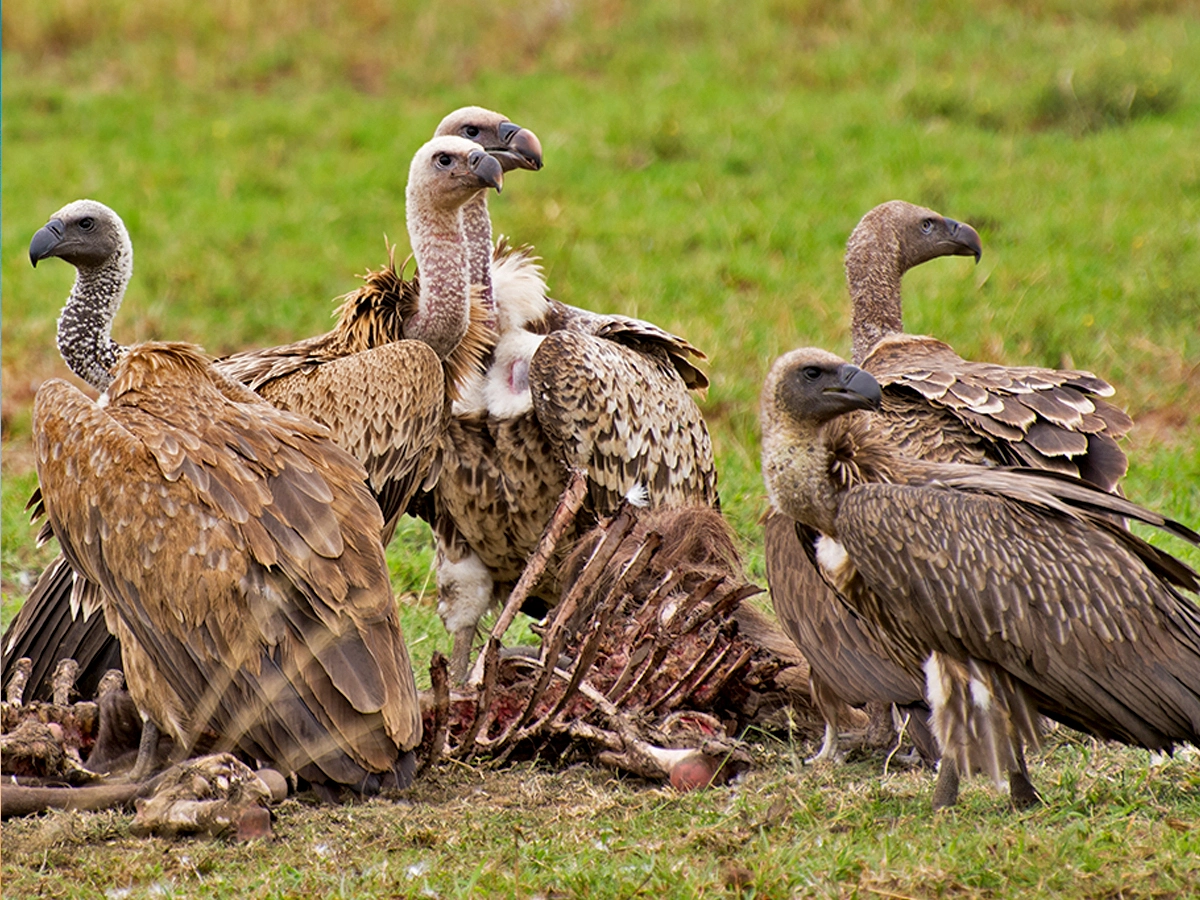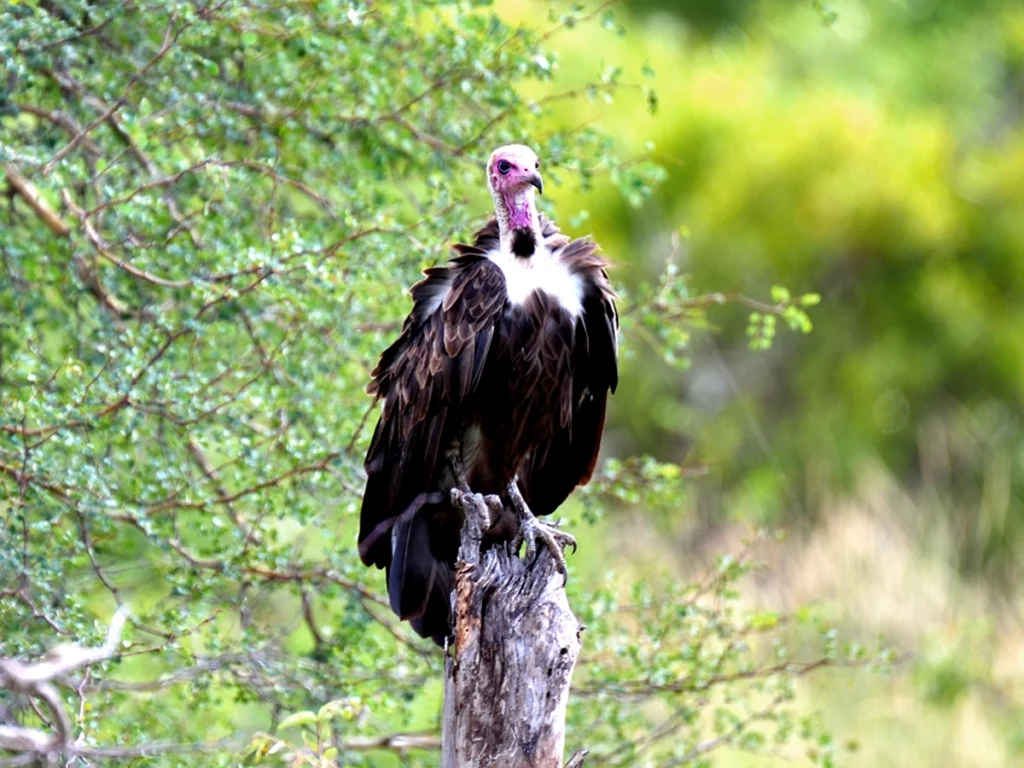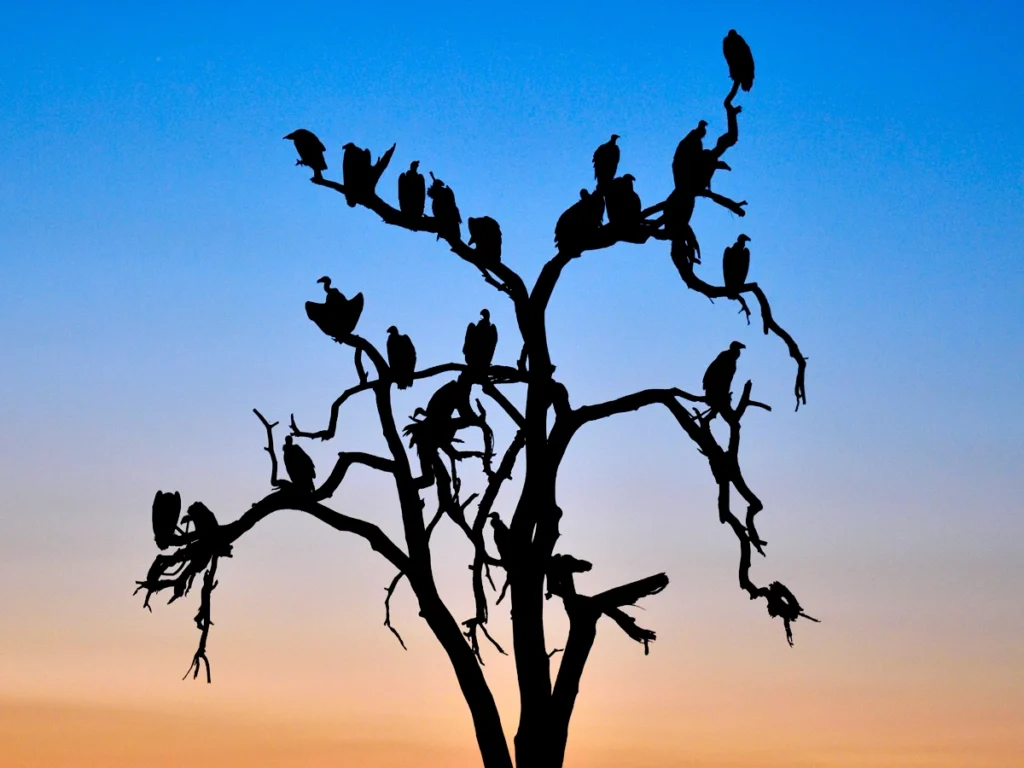
When picturing the Serengeti, it’s easy to think of powerful lions, sleek cheetahs, or towering giraffes as the stars of this wild landscape. But one often-overlooked character—the vulture—plays a vital role in keeping the ecosystem balanced and thriving. Known as nature’s cleanup crew, these remarkable birds help prevent disease, support biodiversity, and contribute to a sustainable Serengeti.
If you’re embarking on a luxury safari with One Nature in the Serengeti National Park, keep an eye out for these essential yet underappreciated birds. By learning about the significance of vultures, you’ll come away with a deeper understanding of the Serengeti’s intricate ecosystem and how each creature, from predator to scavenger, has a unique role in maintaining nature’s harmony.
Vultures are scavengers, meaning they rely on carrion, or the remains of deceased animals, as their primary food source. While it may seem unsavory, this diet is essential for ecosystem health. By consuming dead animals, vultures prevent the spread of harmful bacteria and viruses that can pose threats to both wildlife and human populations. In a region as active as the Serengeti—where large migrations and predator-prey dynamics create many carcasses—vultures are crucial to keeping the environment free from decay and disease.
Without vultures, carcasses would linger, leading to bacteria growth, foul odors, and the potential spread of diseases to other animals. By doing nature’s dirty work, vultures help ensure the Serengeti remains a pristine haven for wildlife, making every luxury safari experience with One Nature as rewarding as possible.
One of the many perks of a luxury safari with One Nature in the Serengeti is the opportunity to see a variety of wildlife up close, including the often-overlooked vulture species. Two key species play essential roles in keeping the ecosystem balanced:

Known for soaring to astounding heights, Rüppell’s griffon vulture is one of the Serengeti’s highest fliers and is often seen gliding above the plains, scouting for food. With sharp vision and impressive flying abilities, it spots carcasses from miles away and gracefully descends to begin the cleanup process. This bird’s scavenging work helps ensure the land remains clear and safe for other wildlife. 2.

The lappet-faced vulture is one of Africa’s largest vultures and a powerful scavenger. With a strong, hooked beak, it’s often the first to tear into tough hides, allowing other scavengers to follow. The lappetfaced vulture’s work highlights nature’s recycling process, where each species benefits from the remains of others, keeping the Serengeti ecosystem in a healthy, sustainable balance.
Often referred to as “nature’s cleanup crew,” vultures have evolved unique physiological traits that make them exceptional at disease prevention. Their digestive systems are adapted to neutralize harmful pathogens that could spread disease, making vultures essential for protecting the Serengeti’s animals and the people who visit. By efficiently disposing of carrion, vultures help maintain a balanced ecosystem, which in turn supports the Serengeti’s rich biodiversity and attracts travelers seeking a luxury safari experience immersed in natural beauty and ecological harmony.
Around the globe, vulture populations face threats from habitat loss, poisoning, and poaching. The decline of vultures would lead to significant ecological issues, as carcasses would accumulate and bacteria would spread more freely. Without vultures, the Serengeti’s ecosystem could face higher disease risks that could disrupt the delicate balance of wildlife. Supporting vulture conservation is not only critical for the health of ecosystems like the Serengeti but also for ensuring sustainable tourism experiences for future generations.

One Nature offers more than just luxury accommodations and incredible game drives—it provides guests with a profound connection to nature. By exploring the Serengeti with One Nature’s expert guides, guests learn about the ecological roles of animals like vultures and come away with a greater appreciation for conservation. Our guides share insights into vulture behaviors and help guests understand the impact of these birds on the Serengeti ecosystem, enhancing each safari with a sense of purpose and discovery.
While they may not be the Serengeti’s most famous residents, vultures play a vital role in maintaining its health and biodiversity. Their contributions as nature’s cleanup crew help ensure that the ecosystem remains balanced, supporting the stunning wildlife that travelers from around the world come to see. When you book a luxury safari with One Nature, you’re not just exploring the Serengeti—you’re joining a movement to support and protect its precious wildlife, including the unsung heroes that help keep nature in harmony.